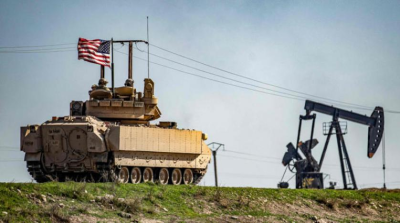NOVANEWS

The new findings, published in the Environmental Contamination and Toxicology bulletin, report high rates of miscarriage, toxic levels of lead and mercury contamination in the cities at the heart of the US-led military campaigns in Iraq, especially Fallujah and Basra.
Mozhgan Savabieasfahani, one of the lead authors of the report and an environmental toxicologist at the University of Michigan’s School of Public Health, said there is “compelling evidence” to link the increased numbers of defects and miscarriages to military assaults.
The latest study found that more than half of all the Iraqi babies surveyed were born with a birth defect between 2007 and 2010, compared to one in 10 before the US-led onslaught in March 2003.
Moreover, over 45 percent of all pregnancies monitored ended in miscarriage in the two years after 2004, up from only 10 percent before Iraq invasion. Between 2007 and 2010, one in six of all pregnancies ended in miscarriage.
The most common abnormalities discovered in Fallujah children are congenital heart defects as 24 out of 26 children were born with the defect.
Neural tube defects, which can result in spina bifida, was also common with 18 out of 46 children born with the deficiency.
Hair samples taken from residents of Fallujah showed trace elements of poisonous metals. The levels of lead were five times higher in the hair of children with birth defects, compared to those without, the study said.
US military forces first bombarded Fallujah in April 2004 after four employees from the American mercenary company Blackwater were killed there.
Seven months later, Americans stormed the city for a second time. They used white phosphorus shells plus depleted uranium munitions, which have been linked to high rates of cancer and birth defects.
Basra children with birth defects had three times more lead in their teeth than children living in areas of Iraq which were not subject to similar bombardments.
Meanwhile, the World Health Organization (WHO) is probing the impact on babies and families of toxic substances used in the bombardment of Iraqi cities, where thousands of civilians died.
The WHO report, due next month, is expected to show a “startling increase in deformities” in infants born after the Iraq war.



